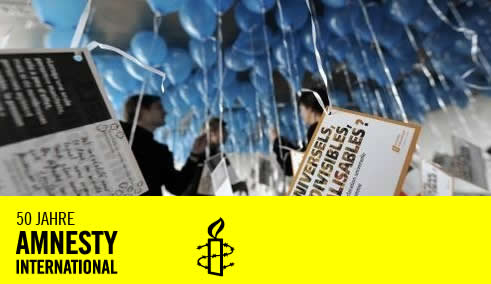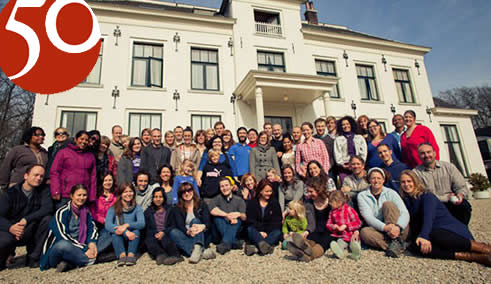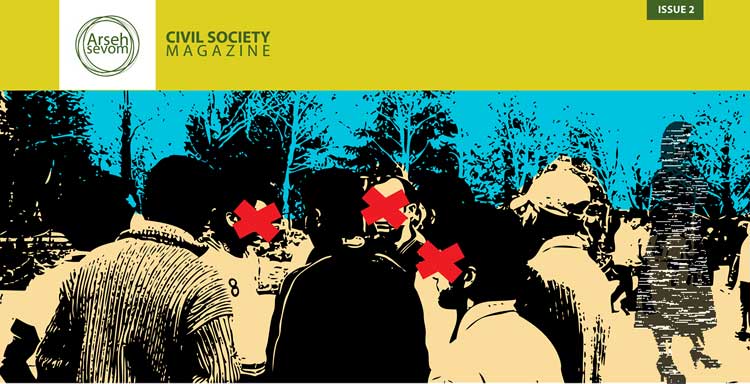
“Are we capable of managing the diversity we have?”: Human Rights in the MENA Region
November 17, 2011
“One Has to Do All One Can for Human Rights”
November 19, 2011Arseh Sevom: How did your organization get started? Do you have an origin story that you tell? If yes, can you spend a bit of time to share it?
Eric Asp: Amsterdam50 was born out of a movement of churches called the Great Commission Association (GCA), whose primary vision is to develop churches around the world and to reach people with the message of God’s love in Jesus Christ.
In May 2001, a team of 30 people from two Great Commission Churches, H20 (a church in Bowling Green, Ohio) and the Rock (a church in Fort Collins,Colorado), joined together to explore Amsterdam and felt God’s leading to indeed start a church in the city center. Over the next year, a group of about 40 individuals including people from Holland, England and various places in the United States formed the church planting initiative called “the Amsterdam Project.” Between July 2002 and March 2003 the entire team of about 40 people made its way to Amsterdam and started looking for jobs, enrolling in school, and finding housing.
The first church gathering was aboard a boat on the IJ River. Slowly the group grew and began meeting in an apartment on the Leidsekade. During this time the community began renovations on an attic space (“zolder”) in a
historic building on the Leidsekade, which was to become the meeting place of the church, which was initially named Zolder50. After several months of hard work, the church held its first official public worship gathering in March 2003. Ever since then, we’ve been continuing to refine our vision for knowing Jesus, becoming like Jesus, and making Jesus known in Amsterdam.
All along the way, we’ve embraced the opportunity to be a church of new beginnings. The number 50, which we’ve incorporated into our church’s name, means new beginnings: perfect completion (seven times seven), plus one. Starting over again, with freshness and focus. The Old Testament speaks of the year of Jubilee (Leviticus, chapter 25). Every 50th year, a clean slate. Debts forgiven, property restored to its rightful owners, slaves and indentured servants set free, rest for the land and for the people… a celebration of new beginnings. In a similar way, the early Christian church was galvanized by a new connection with God, through the Holy Spirit, on the day of 50 (or “Pentecost,” as the Greeks would have said it). 50 days after the resurrection of Jesus, a new beginning with ordinary people being empowered for the extraordinary. The church was born on the day of 50, and the world has been revolutionized as a result. Today, we believe that God continues to work in Amsterdam, offering new beginnings. A newfound community of faith is growing and developing in the city center, proclaiming God’s forgiveness, restoration, freedom, peace, renewal. Ordinary people are experiencing the extraordinary, through new life as children of God, redeemed by Christ, filled by the Spirit.
Arseh Sevom: What was your first significant external challenge?
Eric Asp: Rental contracts and opportunistic landlords were our first challenges. For the first several years, we faced significant financial problems that pushed us to the brink of bankruptcy (on more than one occasion). The pressure didn’t let up until a tense agreement, under threat of legal action, was reached for our organization to be released from the rental contract on our original meeting space.
Arseh Sevom: Your first significant internal challenge?
Eric Asp: Less than a year into the project, the founder and primary leader for our team experienced some significant personal problems, and he had to leave relatively quickly to move back to the United States with his family. His sudden departure left a lot of gaping holes in our ministry: friend and spiritual father, a strong leader with a clear vision, the public “face” and “voice” of the church (both in Amsterdam and in America), oversight of finances and fund-raising… So when he left, there was a real sense of doubt about the future of the church here in Amsterdam. For awhile, we very seriously considered packing up and moving home, after he left.
Arseh Sevom: How did you overcome that challenge?
Eric Asp: When the founder of the project first left, I was asked, together with another young leader from the church, to step into the role of Pastor-In-Training (learning on the job). We really felt like just a couple of hacks, figuring things out as we went along (which has since become a strong part of our organization’s identity). We got a lot of support from others (GCM, ECA, other churches and individuals both from American and the Netherlands). And in spite of all the chaos and confusion, the church grew stronger, better, and bigger — so we felt reassured that God was still with us, even through all the changes. Shortly after the initial leadership transition, an older, more experienced pastor moved to Amsterdam, with his family, to mentor and support Todd and I in our development as pastors for the church, helping us to tweak the ministry to fit our leadership styles.
Arseh Sevom: What are the 5 most important things you learned as an individual contributor and/or as organization?
Eric Asp:
- 1) Humility and dependence on God
- 2) Flexibility and adaptability
- 3) Developing leaders from within
- 4) Listening to people with different points of view
- 5) Cultural sensitivity, without compromising unique personality




